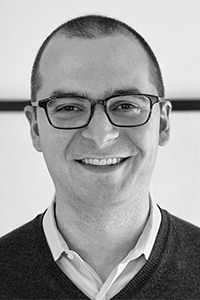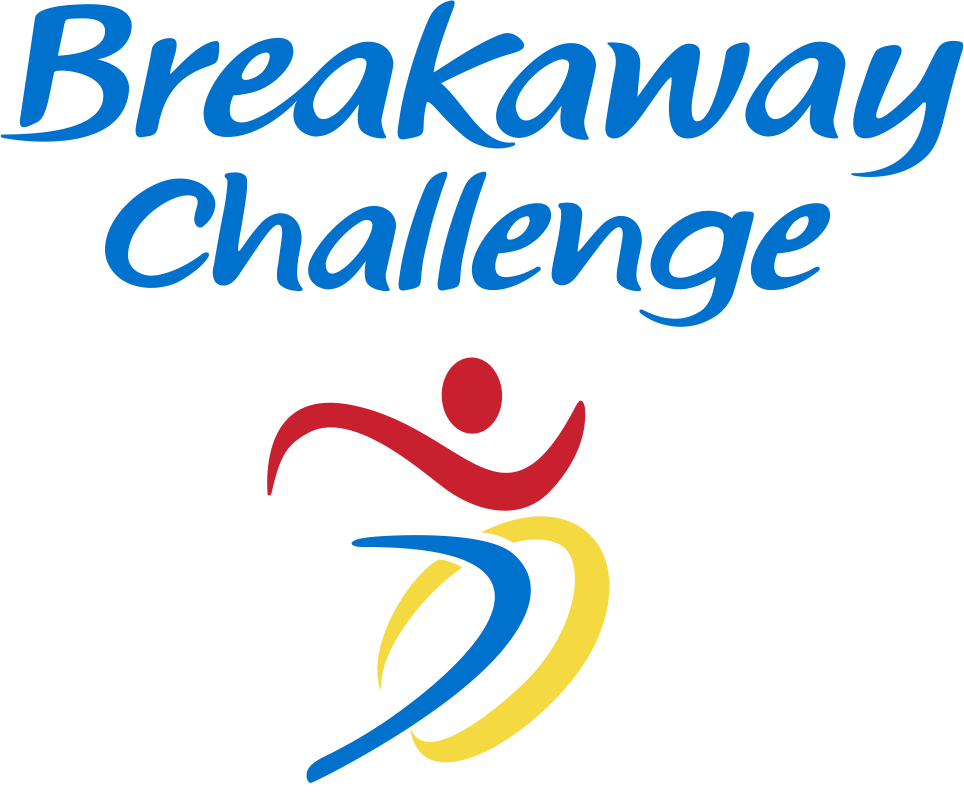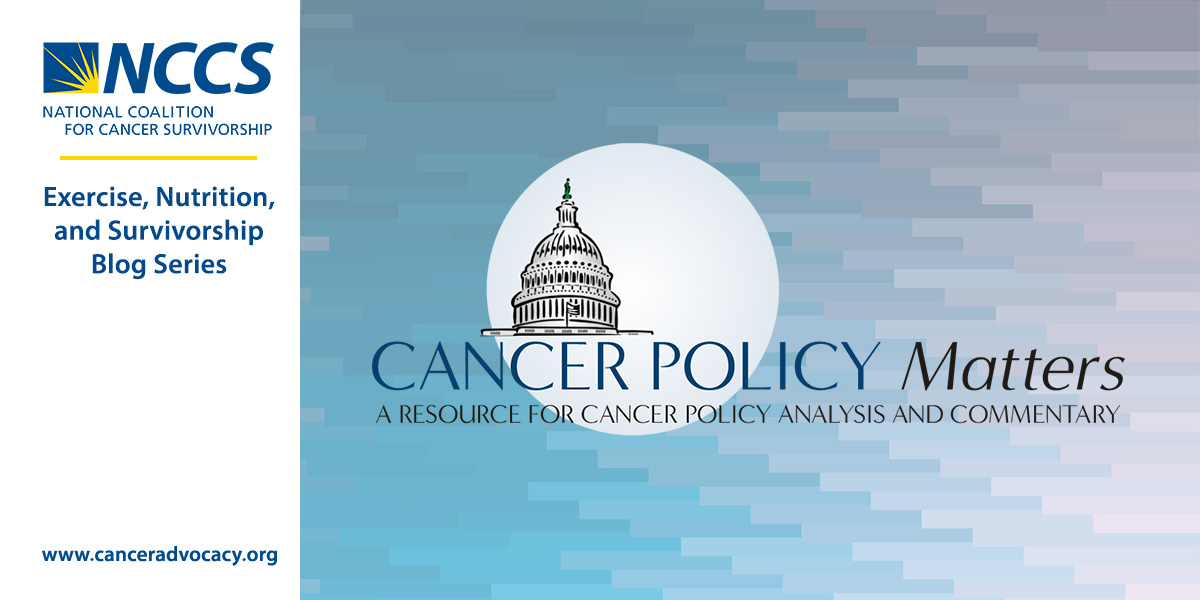Cancer at 30: Reflections on Post-Traumatic Growth
 Exercise, Nutrition, and Cancer Survivorship Blog Series
Exercise, Nutrition, and Cancer Survivorship Blog SeriesSince 2005, NCCS has been a partner in Breakaway from Cancer® (BFC), sponsored by the Amgen Tour of California. As part of this year’s partnership, NCCS developed a blog post series, written by cancer survivors and experts, focusing on health and wellness during and after treatment. Whether you are a patient, survivor, or family member, we hope you find this series helpful and ask that you share it with your networks.
 Guest Post by Chris Bordoni
Guest Post by Chris Bordoni
Cancer Survivor
“Dig deep within yourself, for there is a fountain of goodness
ever ready to flow if you will keep digging.”
—Marcus Aurelius
In December of 2015, I was in the prime of my life. I was thirty years old, recently married, and had just launched a new business.
Like most young people, I didn’t expect to get sick. I exercised regularly, ate reasonably well, and otherwise tried to take care of myself.
On December 19th, I went to the doctor. I had a small lump. I assumed it was nothing. How could it not be nothing?
After a few tests, the young resident found me. We were alone. He was nervous.
Cancer? Are you sure? How do you know? Had we caught it early? From that moment, my life was a blur.
A first surgery. Then new imaging. Then very bad news: The disease had spread to my abdomen and lungs. It was late stage testicular cancer, stage 3B. My odds of survival: Roughly 50-50.
A first round of chemotherapy, followed by a second. A third. Then a fourth.
Three months passed. I was barely alive, but the golf-ball sized tumors had nearly disappeared.
After waiting a few weeks for my immune system to bounce back, I had a major surgery. Retroperitoneal lymph node dissection: A jumble of words describing the process of taking me apart, scouring my body for signs of cancer, and then putting me back together. With 50 staples in my abdomen, I could barely move. I was a mess, but I had beaten cancer.
———
Some side effects are minor annoyances. When lying in bed or sitting in a quiet room, there’s a constant ringing in my ears. When I touch something cold or get nervous, my hands blanch and go numb.
Other changes are more profound, more damaging.
I’m constantly tired, making it difficult to keep up with my young daughter or my most ambitious clients. I also struggle with memory loss. At work, I find myself reading the same sentences over and over, searching for comprehension that used to come easily. Socially, I’m often forced to pretend that I remember a past conversation, even if it was just the day before.
Yet when people ask me about cancer, I tell them that it was the best thing that ever happened to me.
How so?
Cancer helped me to leave the cult of perfectionism. Being sick was messy, and perfection was unattainable. The more I tried to exert control, the more frustrated and out of control I felt. As I realized this, I wondered where else in my life the pursuit of perfection had been counter-productive. I’ve come to accept many of the things that I cannot control. I’ve found greater peace in my life.
Adversity challenged my understanding of compassion. Spending time amongst the unwell and their loved ones taught me this: To assume that I can comprehend the experience of another, even for the briefest of moments, is pure arrogance. Getting sick was a personal call to withhold judgment—to choose to believe that each person is doing his or her best—regardless of how it might look from my narrow view of the world.
Getting sick pushed me to seek greater meaning in my life. After being told that my chance of living was essentially a coin-flip, I began to look at how I wanted to spend the rest of my life. Today, I am much prouder of the things on which I choose to work, the footprint I’ll leave behind on this planet, and what I offer up in each of my relationships.
Cancer may have added new constraints to my life, but it also offered a chance to let go of old limitations. It gave me a chance to create a new future.
———
As it turns out, my experience largely reflects what psychologists call post-traumatic growth. According to work first conducted by Tedeschi and Calhoun, and since replicated in a range of settings, the majority of people who experience trauma report a sense of new opportunities, improved relationships, greater personal strength, more appreciation for life, and spiritual development.
To be clear: I’m fortunate to be alive. I humbly recognize that many others no longer share this privilege. I also recognize that we all grow and heal at our own pace, and in our own way. I’ve had many dark periods over the last three years, and I deeply respect the path that each person faces.
With that said, I’d like to share a few practices that helped me to grow both during and after getting sick:
- Reflect. Growth happens during life’s quiet moments. During chemotherapy, I spent 6 to 8 hours a day at an infusion center, which gave me an opportunity to read, meditate, and begin making sense of my experiences. I’m fortunate to have had this time and continue to look for ways to bring stillness into my life.
- Reframe. While we may not be able to choose what happens to us, we can always choose our response. Having less energy is a challenge, but it is also a constant reminder to prioritize the things I care about most. Similarly, difficulty remembering has helped free me from the past; I spend far less time ruminating on what might have been and more time enjoying the present moment.
- Explore. When confronted with the limitations of current science and thought, I’ve sought alternative sources of wisdom. I’ve become my own experiment. I’ve dabbled with acupuncture, massage-therapy, Original Strength (of which I’m a huge fan), various diets, sobriety, and eliminating caffeine. I’ve also explored mindfulness, guided meditations, traditional religions, new age spirituality, stoicism, positive psychology, minimalism, and many other paths. In the process, I’ve found a handful of practices that resonate with me and have improved my well-being.
- Commit. While exploration opened my eyes to new possibilities, focus and discipline have allowed me to realize the benefits. For example, there’s no secret to eating better—more fruits and veggies, fewer animal products, only occasional sweets and processed foods—and yet I stumble or look for shortcuts just the same as everyone else. With continued persistence, however, I’ve slowly been able to change my habits and begin living a healthier, more sustainable lifestyle.
- Connect. Getting sick reaffirmed my belief that there’s no replacement for real-life relationships. Family, friends, and acquaintances were there when I needed help. In turn, being vulnerable deepened many of these connections. As I’ve tried to make positive changes in my life, the gentle encouragement and accountability of others has allowed me to be more successful. And finally, connecting with others has provided new opportunities for me to give back and explore new interests.
Through my experiences, I’ve come to understand that each of us—whether as individuals, colleagues, family members, or neighbors—will face setbacks and adversity. When the time comes, I hope that each of us can remember that there’s a fountain of goodness within us if we will keep digging.
# # #
About the Author: Chris Bordoni is the founder of Bordoni & Company, a social sector consultancy committed to helping clients imagine the programs, initiatives, and movements for a better world. He currently lives in Northern Virginia with his wife and daughter.
Note: The views & opinions expressed in any guest post featured on our site are those of the guest author and do not necessarily reflect the opinions & views of the National Coalition for Cancer Survivorship. Read our blog and comment policies here.
More From This Blog Series
Amgen Breakaway Challenge
 This year, Amgen launched the Breakaway Challenge, where participants can turn their walking, running, or cycling miles, into supporting the fight against cancer and heart disease.
This year, Amgen launched the Breakaway Challenge, where participants can turn their walking, running, or cycling miles, into supporting the fight against cancer and heart disease.
Learn more and sign up today at AmgenBreakawayChallenge.com





